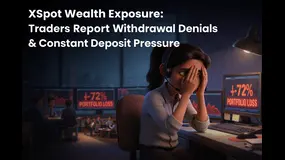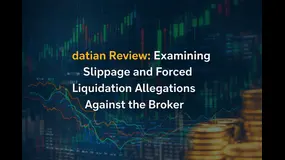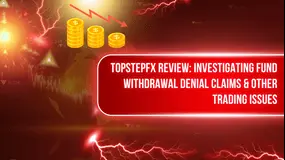Abstract:As cryptocurrency adoption continues to grow, so does the presence of scams within the space. Protecting your investments and assets requires vigilance and a commitment to due diligence. By being aware of common crypto scams and implementing the recommended precautions, you can minimize the risk of falling victim to fraudulent schemes and enjoy the benefits of participating in the exciting world of cryptocurrency.

By: Damian Okonkwo

Four Most Common Crypto Scams and How to Avoid Them
The world of cryptocurrency has seen exponential growth in recent years, attracting both seasoned investors and newcomers seeking to capitalize on this digital revolution. While the profit potential is undeniable, it's crucial to be aware of the common crypto scams that exist in this space. Below are the four most common crypto scams and how you can avoid them:
a) Ponzi Schemes
Ponzi schemes have been a perennial scam in the financial industry for decades, and the crypto space has been no exception. In a typical crypto Ponzi scheme, fraudsters promise high returns on investments, luring unsuspecting individuals to pour their funds into the scheme. Early investors may receive returns, but these are often paid using the capital of new investors, creating a false illusion of profitability.
How to Avoid Ponzi Scams:
● Exercise extreme caution with any investment opportunity promising guaranteed high returns.
● Research the project thoroughly, including its team, technology, and underlying fundamentals.
● Verify if the project has a legitimate use case and a working product.
● Be skeptical of projects that rely heavily on recruiting new investors as a primary source of income.
b) Phishing Scams
Phishing scams involve tricking individuals into revealing their private keys, wallet credentials, or other sensitive information. Scammers often use fake websites and emails that mimic legitimate crypto services, enticing users to enter their private information.
How to Avoid Phishing Scams:
● Always ensure that you double-check all website's URLs before entering any sensitive information on them.
● Be cautious of unsolicited emails or messages requesting your private keys or wallet information.
● Use hardware wallets or secure software wallets with multi-factor authentication for added security.
c) Fake ICOs and Token Sales
Initial Coin Offerings (ICOs) and token sales are popular methods for blockchain projects to raise funds. However, scammers have exploited this by creating fake ICOs or token sales to steal investors' money. They often create convincing websites and whitepapers, making it difficult to distinguish them from legitimate projects.
How to Avoid Fake ICOs and Token Sales Scams:
● Research the project extensively, including its team, advisors, and technology.
● Verify the authenticity of the ICO or token sale through official channels and reputable crypto news sources.
● Be cautious of projects promising guaranteed profits or aggressive marketing tactics.
d) Pump-and-Dump Schemes
In pump-and-dump schemes, manipulative actors artificially inflate the price of a cryptocurrency through coordinated buying, creating a frenzy of interest. Once the price has risen significantly, they sell their holdings, causing the price to crash and leaving other investors with substantial losses.
How to Avoid Pump-and-Dump Schemes Scams
● Avoid making impulsive investment decisions based on sudden price spikes.
● Conduct thorough research on the project, its technology, and its community.
● Stay informed about market trends and be wary of groups or individuals promoting “get-rich-quick” strategies.
Conclusion
As cryptocurrency adoption continues to grow, so does the presence of scams within the space. Protecting your investments and assets requires vigilance and a commitment to due diligence. By being aware of common crypto scams and implementing the recommended precautions, you can minimize the risk of falling victim to fraudulent schemes and enjoy the benefits of participating in the exciting world of cryptocurrency.











